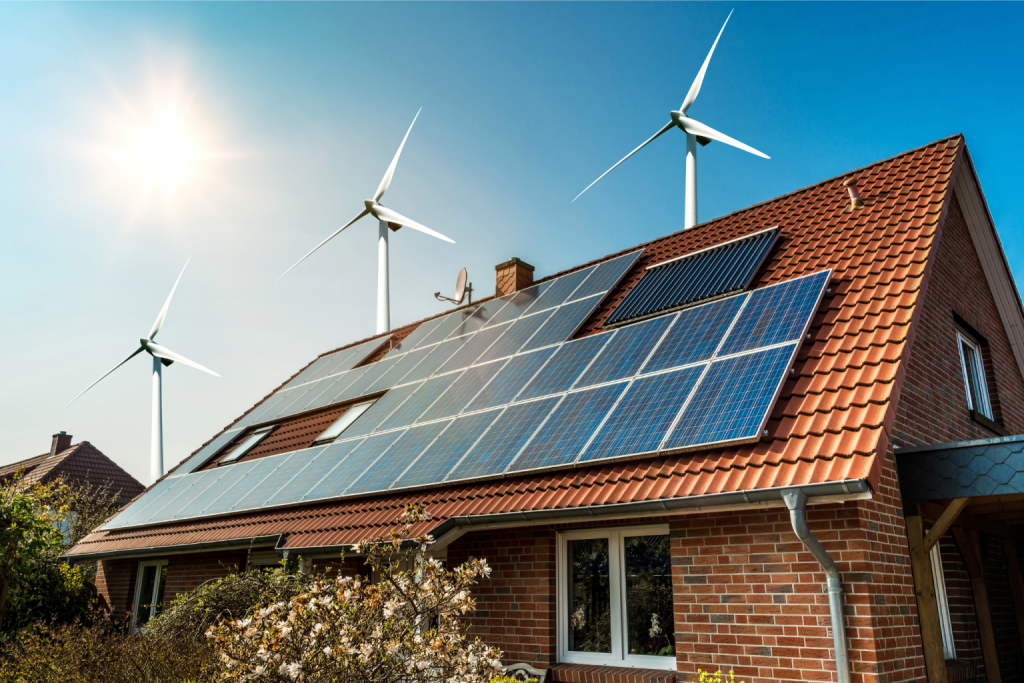The best model for supporting Estonian energy cooperatives is yet to be found
Households that join together in a cooperative to produce electricity will be able to cover a significant part of their own electricity consumption in the future, reducing the costs for households and increasing security of supply says the new report from the Foresight Centre on the outlook for energy cooperatives in Estonia.

Märt Masso of the Foresight Centre noted that the first steps still have to be taken through the introduction of better measures to support the creation of energy cooperatives and to ensure the operation of the energy system. “Electricity was until only recently produced in large electricity generating and co-generation power plants, and households were just passive consumers. Technology has now developed enough that households can play an active part in the electricity system. Whether energy cooperatives can successfully be created depends though on people being prepared to commit and on the operating environment that the state creates”, he said.
The investment needed for a single household to produce electricity may be too costly, and so bringing households together in energy cooperatives allows them to pool their money, skills and knowledge to produce and distribute electricity jointly. Doing this would help household consumers cut their energy costs and their environmental footprint and would make the energy supply more secure, while also maintaining the stability of the distribution network and promoting a sense of solidarity in society.
Analysis produced by the research and consultation firm CE Delft and funded by the European Commission considers that households will be able to produce up to 90% of the energy they themselves consume in 2050. Today they produce only 3%. “The same report considered that Estonia had the potential for consumers to produce up to 70% of the electricity they consume themselves, as energy electricity generation from solar energy will become more common, and households and companies will take more steps to save energy”, said Masso.
Surveys have shown that over 80% of people in Estonia think that state policy should support households and cooperatives in generating energy and in using energy that they generate themselves. The role of the state in creating a favourable operating environment for energy cooperatives is also foreseen by European Union policy, and Estonia has already transposed the directives on that. “It should be noted in general though that the support system in Estonia is more constricted than those in other European countries, and it follows in the footsteps of the countries that are forging ahead”, observed Masso.
The new report from the Foresight Centre points out that supporting the communal generation of electricity in Estonia would not necessarily need the Estonian support system to take on every single possible measure applied in other countries. “Communities could be given the opportunity to test different schemes and the framework of measures could be set up gradually by taking on the lessons learned from experience. Such tests would help the regulators understand the factors that make good energy cooperatives practical and the risks to them, and would allow communities and the state to find measures together that would support the communal generation of energy more efficiently in our legal and economic space”, explained Masso.
The report on the outlook for creating energy cooperatives in Estonia is part of the Foresight Centre’s research stream on Active Consumers in the Future Energy System. The aim of the research stream is to identify the factors that the role of the consumer in the energy system of the future will depend on, and to define scenarios out to 2040 for how households and other micro-producers could be involved in the Estonian energy system.
Latest news
-
16.01 2026Study: The transition to Estonian-language-based education has led Russian families to use the help of private tutors
Hiring private tutors is widespread in Estonia. According to the study by the Foresight Centre, “The Use of Private Tutors in Estonia”, the need for private tutoring is greatest in Russian-speaking families, where private tutors are hired more than twice as often as in Estonian-speaking families.

 An independent think tank at the Riigikogu
An independent think tank at the Riigikogu